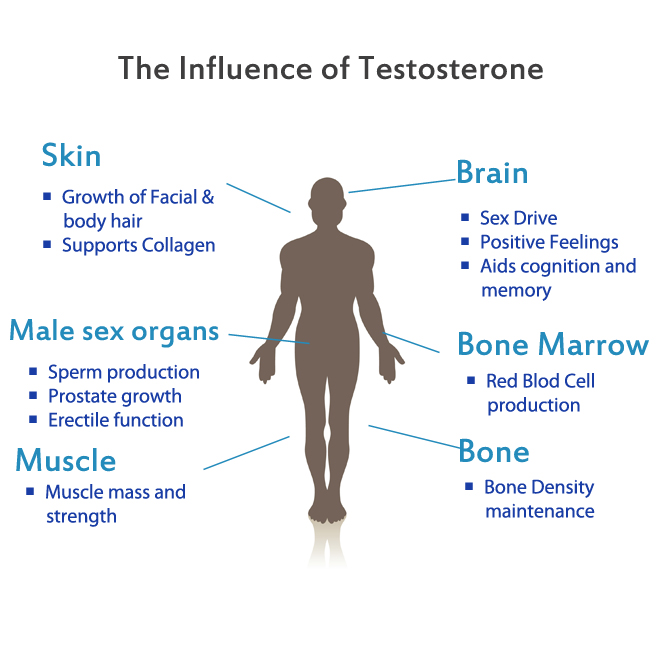Low Testosterone Is Also a Problem for Women

Testosterone is generally considered a male sex hormone. Men have more testosterone than women, although female adrenal glands and ovaries also produce small amounts of the hormone. Although low testosterone is a serious problem in men, many may not be aware that women with low testosterone also have health problems. From a low sexual drive to the production of blood cells, we discuss what low testosterone means for women, and what Treatment Options are available today.
How does low testosterone occur?
Testosterone belongs to a group of hormones known as androgens. These hormones help to regulate issues such as your sex drive, fertility and your red blood cell production. Although there are no conclusive guidelines for what is considered “low” testosterone, women must have about 15-70 nanograms per deciliter (ng / dl) in her blood.
Some women find that they have low testosterone because of problems with their ovaries, or the pituitary gland or adrenal glands. But most women are diagnosed with low testosterone around the time the menopause starts. As women age, their ovaries begin to produce lower levels of hormones, which means that hormones such as testosterone and estrogen can naturally decrease.
Side effects of low testosterone
If you feel constant slowness, fatigue or muscle weakness, it is possible that your testosterone level is the cause. Other symptoms may include:
- Decreased libido, or decreased sexual satisfaction
- Weight gain
- Irregular periods
- Fertility problems
- Vaginal dryness
- Sleep disorders
- Loss of bone density
Research on testosterone and women is still limited and can vary from medical practice. Because the symptoms of low testosterone can occur so often, a doctor can often check for problems such as depression, anxiety, thyroid disorders or menopause transition before diagnosing low testosterone.
What are your treatment options
Although the effects of too much testosterone in women are well known, the long-term effects of too little testosterone have not been largely studied. This can lead to various treatments related to low testosterone levels.
Many chose to start with a DHEA supplement first. Dehydroepiandrosterone is a hormone that is produced by your body’s adrenal glands and is a precursor to both testosterone and other androgens. The theory is that if you have more DHEA, your body will produce more testosterone. You can then be prescribed testosterone in its synthetic form, some of which say it is not as effective in treating low testosterone as natural forms of testosterone.
Doctors and medical researchers are also studying the effects of plasters, implants and pills in relation to the treatment of low testosterone. In extreme cases, some women are prescribed testosterone in gel formulations. These are generally prescribed to men and have much higher testosterone levels than other testosterone formulations.
The benefits of testosterone treatment
Even after being diagnosed with low testosterone, many women are rightly nervous about starting hormonal therapy. But there are some amazing benefits in regulating your testosterone levels.
- Testosterone gives you the opportunity to create a healthy muscle / fat ratio, giving you a leaner, slimmer appearance.
- Research suggests that testosterone may increase moods in depressed women, or better than antidepressants
- It can help build bones and work to prevent osteoporosis.
- Women with a testosterone boost can perceive a firmer, more even complexion and texture.
- Low levels of testosterone in postmenopausal women are associated with an increased risk of heart disease. Testosterone therapy can help restore or reshape heart tissue after a heart attack.
It is imperative that you speak to a doctor before you start taking testosterone medication or supplements. Women who are pregnant are not allowed to take androgens and those who are breastfeeding are strongly advised against androgen therapy until they are no longer breastfeeding.
Do you think your testosterone levels may be low? Contact the OBGY Diagnostics of Excellence medical professionals. With test and treatment options, we ensure that you feel better than ever in no time.